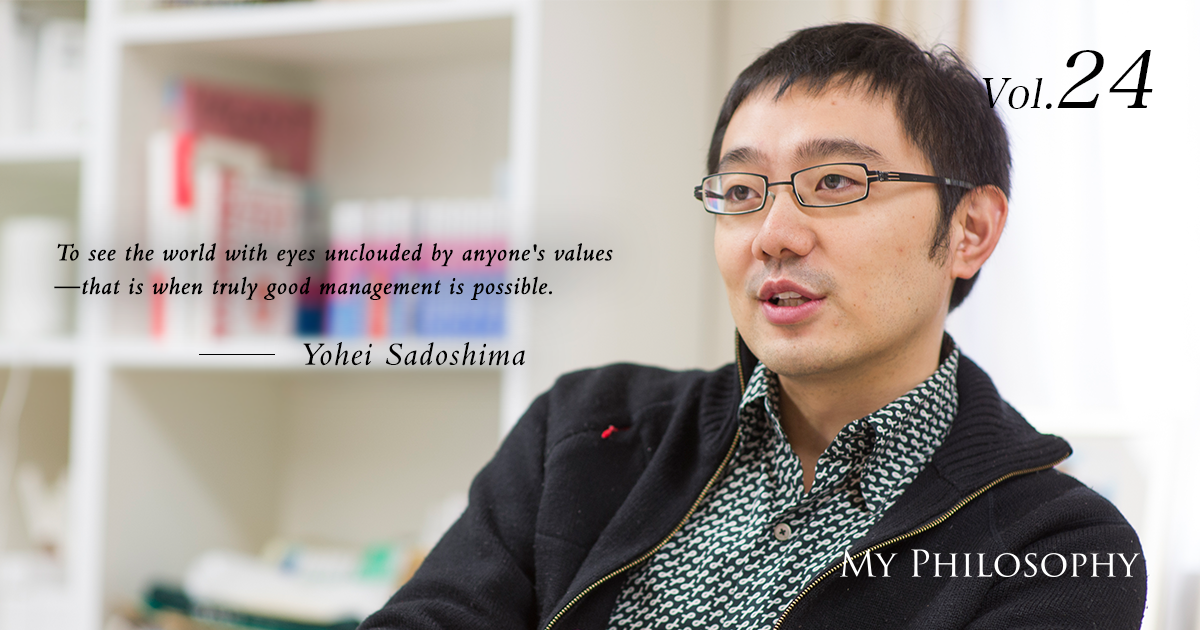
Mr. Yohei Sadoshima, who left a publishing house where he edited popular manga to establish his own company, is striving to establish the creator agent business in Japan. Having transitioned from an editor to a business owner, he shared his views on management and more.
Profile
Vol.24 Yohei Sadoshima
President and CEO of Cork, Inc.
Born in 1979, Yohei Sadoshima spent his middle school years in the Republic of South Africa. He graduated from Nada High School and went on to study at the Faculty of Letters at the University of Tokyo. In 2002, after graduating from university, he joined Kodansha. He worked in the Weekly Morning editorial department, where he managed several notable manga series, including "Vagabond" by Takehiko Inoue, "Dragon Zakura" by Norifusa Mita, and "Hataraki Man" by Moyoco Anno. He also oversaw "Space Brothers" by Chuya Koyama, which became a mega-hit with over 16 million copies sold and was adapted into a TV anime and a live-action film. Beyond manga, he also managed serialized novels such as "Modern Times" by Kotaro Isaka and "Fill the Void" by Keiichiro Hirano. In 2012, he left Kodansha to establish Cork, Inc., an agency for writers.
※The titles and affiliations are as of the time of the interview in December 2013.
Business Owners and Editors are Similar
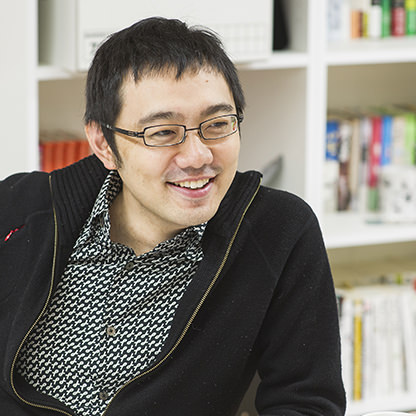
After a year of establishing my company, my way of thinking has significantly changed. When I left Kodansha, I thought I wanted to be an editor for life. I believed that being an editor was my true essence, and being a business owner was just a temporary role. However, if asked “Who are you?” now, I would answer, “I am a business owner,” because I want to hone myself as a manager. Before we delve into what management entails, let me first discuss what editing is. There are two important aspects to an editor’s job.
The first is to work with the author to determine the most effective order in which the ideas in the author’s mind can be communicated to the world. Lately, I have been describing editing as the engineering of information sequence. The order in which information is conveyed can significantly change how it is received. While facts are generally considered valuable, they alone do not hold much value; rather, how they are conveyed is crucial. This aspect is often taken lightly. How should information be sequenced so that it is more readily accepted by the public, and more people buy into it? Public relations, I believe, is about controlling the sequence in which information is released.
The second aspect is identifying talent and investing in it. Investment means supporting something that the public has not yet valued, on one’s own responsibility. In financial institutions, this is a monetary investment, but for an editor, it involves labor and time. For an editor, investment means supporting newcomers, and in business management, it means making decisions by investing in human resources such as employees and the company’s finances. Having met many business owners recently, and observing what makes a good business owner, I’ve come to think that a business owner refines and extends the skills an editor possesses. In other words, a good editor can become a good business owner, and vice versa. I have realized that I need to become a good business owner, to think strategically about the growth sequence of the company, and to invest wisely in order to expand “Cork.”
Becoming a good business owner does not mean ceasing to be an editor. So, when asked what I am, I can confidently answer that I am a business owner.
The Speed Required in Business
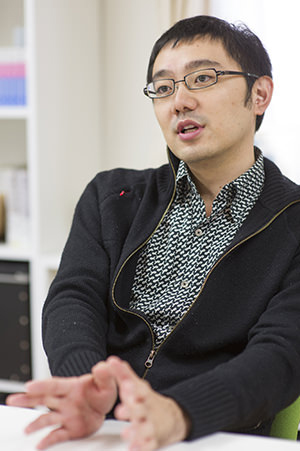
In business, speed is essential. Japanese companies often operate on a deductive principle, requiring meticulously planned and repeatedly refined projects to ensure success. However, no matter how much you refine, success is not guaranteed. The pace of change in the modern era is so rapid that by the time a plan is polished, the times may have already changed. For instance, when recommending “Space Brothers” to someone in Japan who has never read it, you might mention that Shun Oguri stars in the movie, Masaki Okada also appears, Coldplay performed the theme song, and it has an anime adaptation. This approach can make someone curious enough to give it a try. However, if you take this same approach to the American market, the foundational context doesn’t translate directly, and you must start by explaining how it differs from the American concept of a “children’s cartoon,” which can significantly delay its acceptance. This is something you can’t fully grasp from staying in the office in Japan.
There are many things that can’t be fully understood just by thinking about them; they become clear only when you actually try to implement them. Therefore, in pursuing your goals, it doesn’t matter which path you take. It’s better to try various paths, and it’s okay to turn back. However, speed is crucial in this process. While focusing on speed might sometimes result in a bit of sloppiness, if you are on the path to your goal, you can simply make adjustments along the way. I don’t believe that anything is lost by prioritizing speed in the pursuit of our goals.
To the Entrepreneurs Creating New Waves
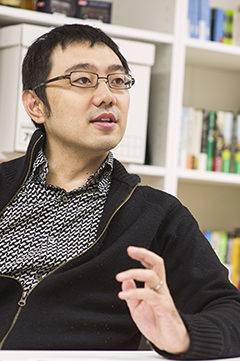
When the Internet was created, it was like the creation of a road, if you translate that into the real world. As soon as cars started driving on this road, it became congested. That’s when Yahoo! introduced category-based searching, like setting up traffic signals on the road. Although these signals were established, congestion occurred again. Then Google appeared, making it possible to go anywhere with search, like constructing a highway in this digital landscape. If we consider the state of the internet as a real map, it’s like having just a highway and only a few spots where people gather. Twitter and Facebook then created places where people gather, like Shinjuku Station or Narita Airport, becoming hubs where various businesses operate. Businesses conducted on the internet, like Amazon and Rakuten, are just digital translations of real-world spaces. I believe that services unique to the internet that aren’t mere digital replicas of the real world have yet to begin. Just as Disneyland created a new concept of theme parks, I expect that the internet could host groundbreaking entertainment venues similar to Disneyland. Some might say YouTube is entertainment, but it’s really just a more convenient form of television. Kindle has merely made books more convenient. Disney expanded the possibilities of entertainment through the concept of theme parks, but no one has truly expanded the possibilities of entertainment on the internet yet.
There’s a real possibility that the creators at “Cork” could create something new and Disneyland-like on the internet. It’s feasible for a Japanese venture like “Cork” to have a global impact similar to Facebook, and I am aiming to make that happen. The key to this is how I can view the world with fresh eyes.
Some people find value in my educational background, but I personally do not see it as valuable. While it’s rare for someone from Nada High School to go to the University of Tokyo and then join Kodansha, I think that’s all there is to it. My past decisions were merely choosing options that society approved of, essentially delegating all my decisions to public opinion. In other words, my vision was clouded by societal views. Unless I can completely cleanse this view, I cannot truly manage well or create anything innovative. Currently, I am often referred to as “the Sadoshima who worked on ‘Space Brothers’ and ‘Dragon Zakura,'” but if I am still known by these associations in two or three years, it means I have not made enough effort, and I should feel ashamed.
Doing What You Love with the People You Love
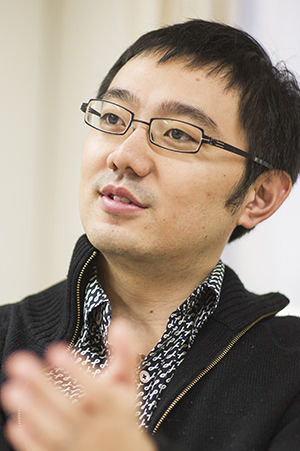
I believe that the internet has made society more transparent. Before its advent, information was opaque, and those who had privileged access to information commanded overwhelming salaries. In the internet age, resources—money and other assets—gravitate towards those with genuine talent, creating disparities that can be thousands or even tens of thousands of times greater than before. However, this talent is transparent. Take real estate, for example. In the past, the same apartment could be rented out at different prices. Now, thanks to easy online searches, all units must be rented out at the same price. In this way, information has become transparent, and the opacity that once existed has diminished in many areas.
However, there are still opaque aspects remaining. I hypothesize that if these opaque areas were made clear, creating a society where hardworking and skilled individuals are more readily rewarded, it would result in a more interesting society. I want to help steer the world in this direction. To initiate this shift, we need to give 120% effort. You can’t give 120% if there’s a cloud over your heart, but when doing what you love with people you love, it’s possible to give that 120%. That’s why doing what you love with the people you love is so important, and it’s what I value most.
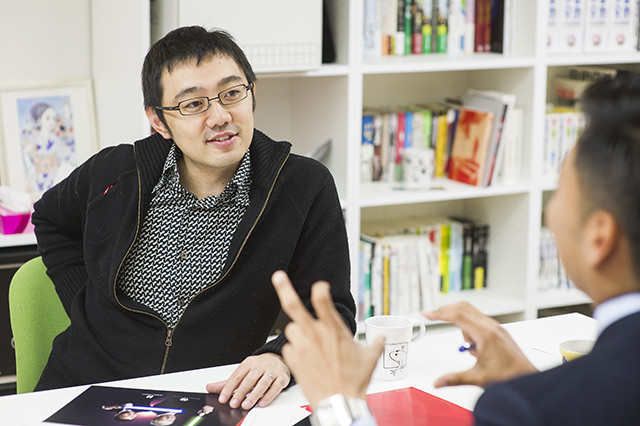
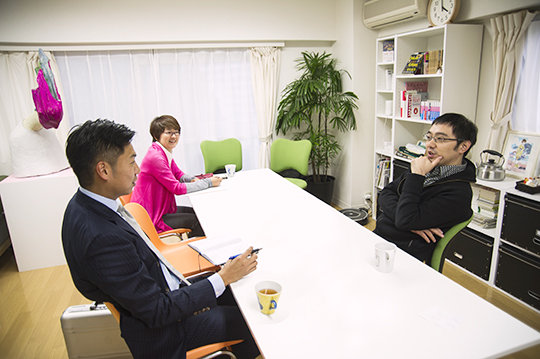
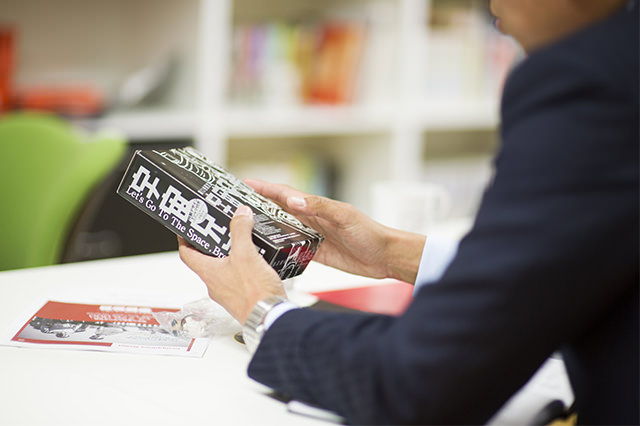
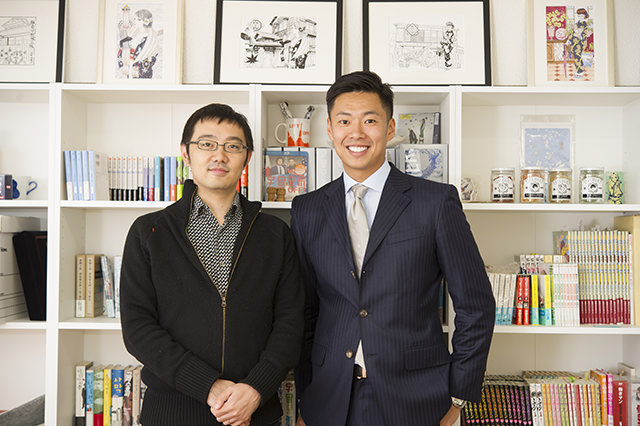
Many people might consider Mr. Sugiyama to be insensitive. However, after spending a few hours drinking with him, he reveals just a hint of his vulnerability. Seeing this, one realizes that he is not truly insensitive, but rather, he pretends to be to cope with the expectations around him. He believes it’s better to act and possibly be disliked than to do nothing while constantly trying to please others. Life is short, and it’s better to do what you feel driven to do. This sort of insensitivity can only be possessed by someone who has made a resolute decision; inherently, he might be kind and meticulous by nature. Sometimes, a small message from Mr. Sugiyama can be surprising, making you realize, “He was aware of that.”
Mr. Sugiyama does have the courage to act, though it seems he has not yet found his destination. There’s no need to have a destination before starting the journey. It’s fine to find it along the way. As a fellow traveler of the same age, I am curious to see what destinations Mr. Sugiyama will discover.
President and CEO of Cork, Inc.
I spent a continuous 18 hours with Mr. Sadoshima in Singapore, where we had both traveled to attend a meeting. Our conversation ranged from business to life itself, and it was a vivid experience of how Japanese business is globalizing. Mr. Sadoshima and I, both born in 1979, found much common ground in our views on work and life during our discussions, which led me to invite him to appear in “My Philosophy.”
The question I wanted to ask him during the interview was not as an agent, but about his year as a “president.” A president has unique concerns and joys, and it’s very encouraging to increase the circle of peers with whom these can be shared. I am thrilled to have met such a sharp, intelligent, and logically minded challenger like Mr. Sadoshima. With six more years until we turn 40, I hope that we can continue to grow and inspire each other by that time
December 2013 at Cork, Inc., Edited by Naomi Kusuda, Photographed by Daiki Ayuzawa
Read INVESTOR-Z (1) Full Color





























































































































